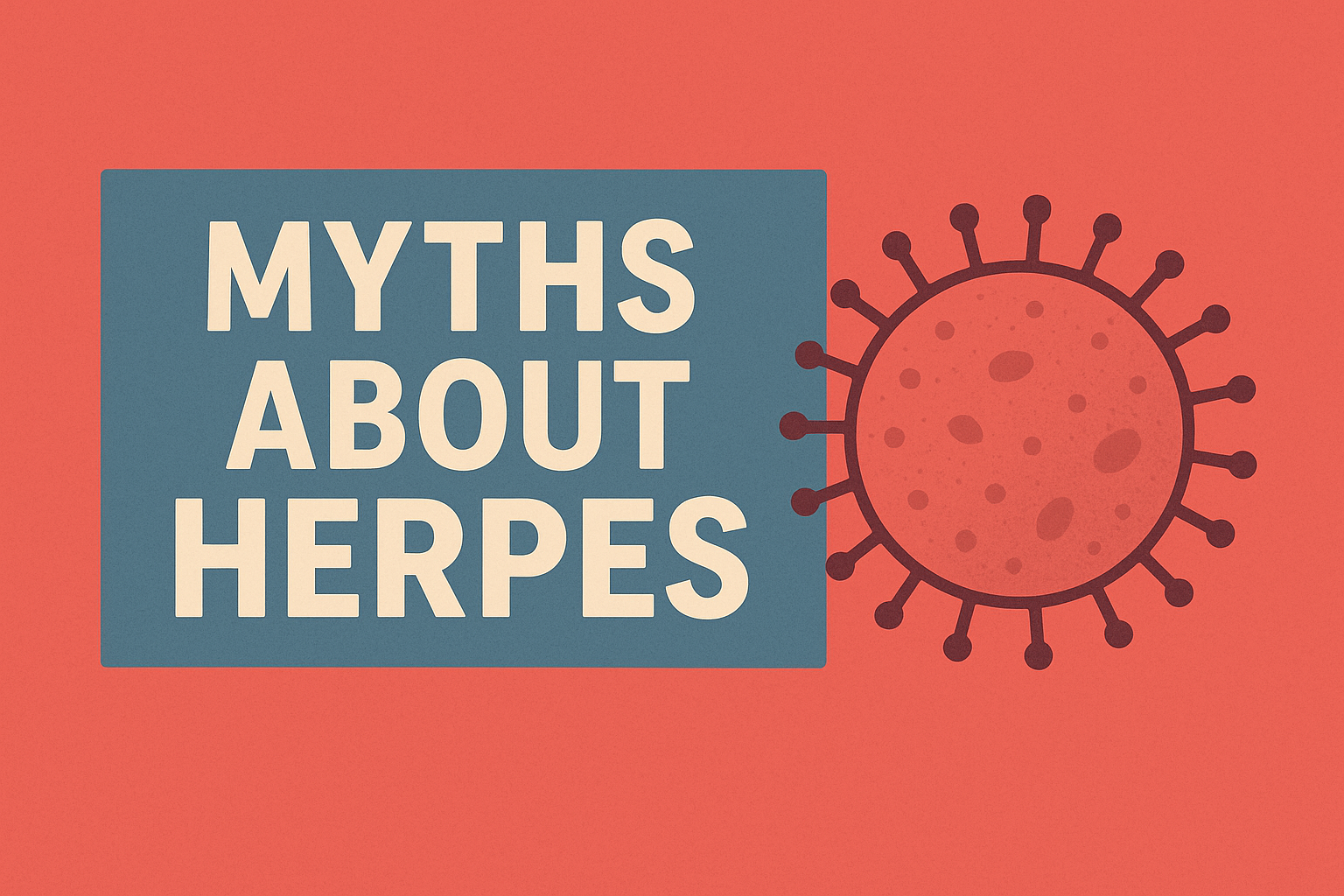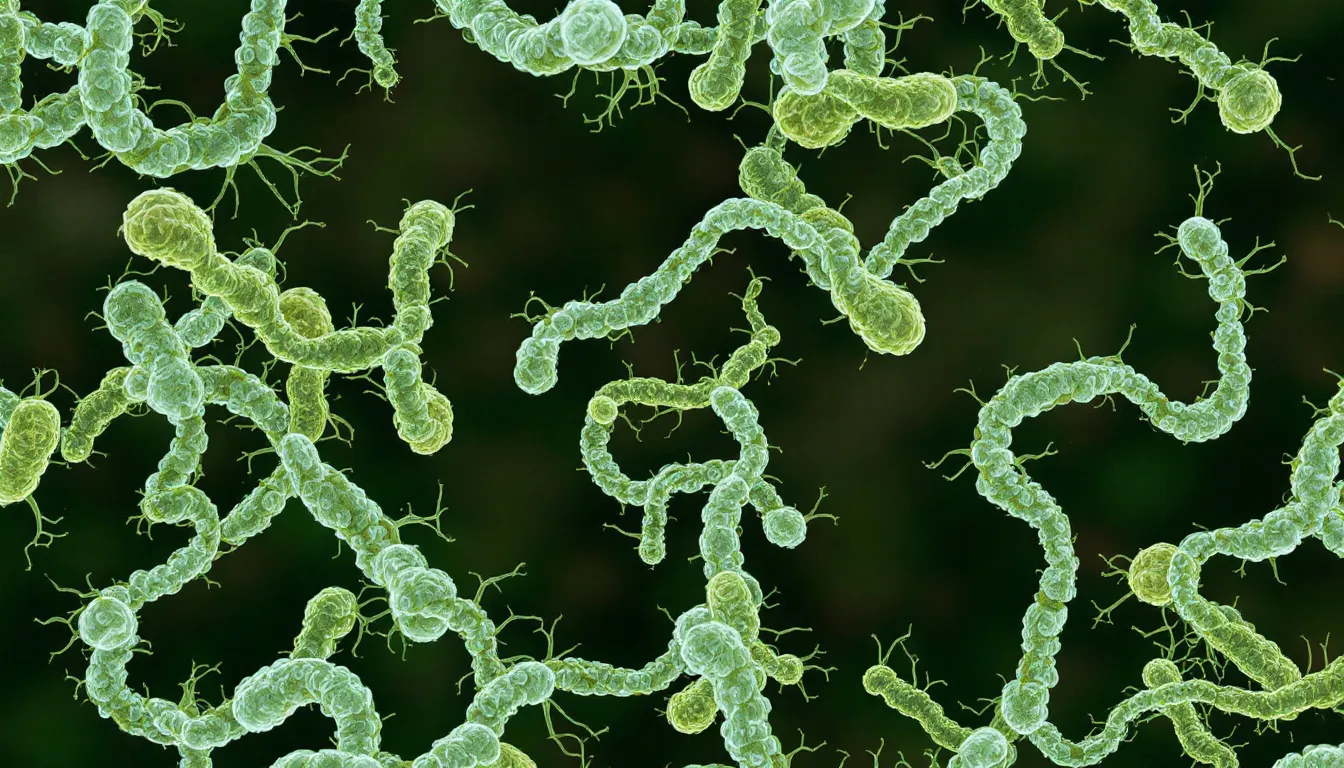Can an STD cause diarrhea? Yes, some, including chlamydia, gonorrhea, and HIV, can cause diarrhea. This article explains how these infections cause this symptom, how to recognize it, and the available treatments.
Key Takeaways
- Diarrhea caused by STDs, such as chlamydia, gonorrhea, and HIV, can significantly affect daily life and may indicate underlying health issues.
- Recognizing symptoms, including acute and chronic diarrhea—along with other typical signs like discharge, sores, and pain—is crucial for timely diagnosis and treatment to prevent complications.
- Effective treatment options vary based on the underlying cause, with antibiotics for bacterial infections and antiviral medications for viral infections.
Understanding Diarrhea Related to Sexually Transmitted Infections

Diarrhea is a common but often overlooked symptom of certain STIs that can affect the digestive system, leading to frequent, watery bowel movements. Although seemingly minor, chronic diarrhea can significantly disrupt routines. Some STDs also cause flu-like symptoms, often mistaken for colds or allergies, highlighting the importance of STD testing. Recognizing this connection is crucial for proper treatment.
STD-related diarrhea appears as acute or chronic. Acute involves over three loose stools daily for less than two weeks; chronic lasts longer and may indicate serious issues. Symptom severity and duration vary, so monitoring changes is crucial.
Maintaining fluid levels is paramount when dealing with either type of diarrheal condition stemming from sexually transmitted infections. Adequate hydration plays an instrumental role in preventing dehydration—a factor which significantly influences one’s recuperation process—and should not be overlooked regardless if the situation involves acute or persistent manifestations of diarrhea. Adhering to simple hydration practices enhances symptom management efforts while also improving overall well-being.
Common STDs That Cause Diarrhea
Numerous sexually transmitted infections are associated with diarrhea as a symptom, including well-known conditions such as gonorrhea, chlamydia, and HIV infection. Diarrhea can result from infection caused by specific pathogens such as bacteria or viruses. These STIs can have varying effects on the digestive system, often resulting in unpleasant experiences like diarrhea and gastrointestinal discomfort.
Chlamydia specifically has the potential to provoke inflammation within the body that affects digestion. Gonorrheal infection might induce painful bowel movements accompanied by rectal distress, leading to diarrhea. Without proper treatment, these symptoms may escalate into more critical health complications involving persistent chlamydial or gonorrheal infections. A chlamydial or gonorrheal infection can also present with symptoms such as fatigue, fever, and back pain if left untreated. Discharge from the penis is also a common symptom of these infections and may be accompanied by burning, itching, or pain during urination.
For HIV’s role in causing diarrhea, this is mainly due to how the virus significantly compromises immune defenses, which then causes ongoing issues within the gastrointestinal tract. That’s why prompt diagnosis and intervention for HIV, along with other STDs, are crucial not only for controlling symptoms but also for preserving one’s general well-being.
Lastly, hepatitis A and C can also cause gastrointestinal symptoms, including diarrhea. These infections may also present with nausea, jaundice, and weight loss, making early recognition and diagnosis important for preventing serious liver complications.
Recognizing Symptoms Associated with STD-Related Diarrhea
Recognizing diarrhea related to STIs is crucial for prompt treatment. Rapid-onset diarrhea, with over three watery bowel movements daily, can occur suddenly and shouldn’t be ignored. Consider the possibility of an STD if other symptoms are present.
Abdominal pain may suggest the presence of an STI, and an increased frequency in bathroom visits with liquid stools points towards an infectious process. With an STI, this discomfort may escalate to include painful urination or excruciating bowel movements. A persistent sore throat can also be a symptom of certain STDs. Throat infections, including pharyngeal, can occur after oral exposure to certain STDs. Sometimes, individuals may only experience mild symptoms, and in some cases, diarrhea might be the only sign of an underlying STD.
When someone experiences persistent diarrhea lasting two weeks or more—termed chronic—it may indicate a more significant underlying medical condition that requires attention. Consistent screenings play a vital role in recognizing and controlling sexually transmitted infections responsible for causing such digestive distress early on to avoid complications and support improved well-being outcomes.
Diagnosing STD-Related Diarrhea
Correct and timely diagnosis is crucial for effective treatment of diarrhea caused by STDs. Consult a medical professional for an accurate diagnosis and get tested immediately if you notice symptoms like lesions, sores, or lumps, which can be early signs of STDs. Health professionals utilize various diagnostic tools, including urine tests and swabs, such as oral and rectal swabs, to detect pathogens like chlamydia and gonorrhea, ensuring precise identification.
In 2021, the STI Treatment Guidelines were updated with current recommendations for best practices. They include tailored regimens for managing STD-associated diarrhea, helping healthcare providers choose optimal treatments. Testing results are typically available within one to two days and can be processed immediately upon receipt. Std testing services play an integral role in facilitating swift diagnoses that lead promptly to appropriate therapeutic measures.
Since testing maintains confidentiality, it lessens the societal stigma related to STDs and motivates more people to seek out testing. Promptly identifying an infection significantly enhances the likelihood of successful treatment and improves overall health outcomes.
Effective Treatments for STD-Related Diarrhea
Addressing diarrhea from STDs requires tailored treatment based on cause. If bacteria like gonorrhea or chlamydia are responsible, antibiotics are prescribed to treat the infection, relieving symptoms and preventing complications.
Antiviral drugs are key in managing viral infections like HIV, reducing symptoms and disease progression. For at-risk individuals, pre-exposure prophylaxis (PrEP) helps prevent infection. Additional methods, such as home care and treating partners, support recovery and prevent reinfection.
To help healthcare professionals provide optimal care for STD-related diarrhea, tools like the 2021 STI Treatment Guidelines and charts offer current guidance. These resources equip providers with up-to-date knowledge to manage these conditions effectively, aiming for better patient outcomes.
Preventing STD-Related Diarrhea
Proper prevention will help avoid STD-induced diarrhea. Wearing condoms while engaging in sexual activities, including oral sex and sexual intercourse, greatly decreases the likelihood of contracting and spreading STIs. Additionally, consistent and thorough handwashing can deter the transmission of pathogens that might result in diarrhea. Secondary exposure, such as touching infected areas and then other body parts like the eyes, can also spread infections.
Open communication between partners will help promote a culture of honesty, leading to safe sexual health choices. Minimizing the number of sexual partners also diminishes the potential for acquiring STDs. Good hygiene and safe sex practices can also help prevent other conditions such as pubic lice and vaginal thrush. These strategies play a vital role in curtailing the risk associated with infections capable of causing diarrhea.
When to Seek Medical Help
Knowing when to seek medical assistance is essential for effectively addressing STD-related diarrhea. Intense abdominal pain or a fever along with diarrhea are signs that a healthcare provider may be necessary. If other systemic symptoms such as headaches or nausea accompany the diarrhea, it’s recommended to get professional advice.
Other symptoms to keep an eye out for include swollen testicles or pain in one or both testicles, as these may indicate serious conditions like orchitis. Additionally, early signs of herpes, such as herpes prodrome or the appearance of herpes lesions, should prompt immediate consultation with a healthcare provider.
If you have diarrhea for more than two weeks, it’s highly recommended to visit a healthcare provider. Ongoing symptoms may signal serious health issues needing medical attention. Untreated STD-related diarrhea could worsen into severe complications.
Early prompt medical intervention can prevent complications, so addressing these conditions quickly ensures they are managed before becoming more severe.
Long-Term Effects of Untreated STD-Related Chronic Diarrhea
If STD-related diarrhea is not addressed, the consequences can be grave. Chronic joint inflammation may develop, leading to pain and discomfort in the joints. Specifically, gonococcal arthritis arises from neglected gonorrhea or chlamydia infections and can severely compromise joint health, sometimes causing irreversible damage. Untreated joint infections can result in permanent joint damage, including chronic pain and loss of mobility. Reactive arthritis and venereal arthritis are potential complications of untreated chlamydia or gonorrhea, where bacteria infect the joints and cause ongoing inflammation.
Untreated chlamydia and gonorrheal infections can also progress to pelvic inflammatory disease (PID), which poses a significant threat to fertility. In late-stage chlamydia, severe complications such as PID, chronic pelvic pain, and infertility can occur if the infection is not detected and treated early, especially in women. The ramifications of unmanaged HIV are particularly dire, as it may advance to AIDS, resulting in serious deterioration of health.
Without intervention, diseases like syphilis can cause critical harm to internal organs or even result in death. These extreme outcomes highlight the need for timely diagnoses, prompt treatment after infection detection, and understanding the signs of clinical presentation to effectively prevent such severe complications.
Other Complications of STDs
These illnesses can significantly affect the body, especially if not treated promptly. In addition to causing diarrhea and digestive problems, they can result in severe health issues that harm multiple organs and systems. It is crucial for sexually active individuals to understand the wider complications of sexually transmitted diseases, as early detection and treatment can avert long-term damage and safeguard overall health.
Hepatitis B and Liver Damage
Hepatitis B is a common STI that poses a significant risk to liver health. This viral infection is transmitted through bodily fluids such as blood, semen, and vaginal fluids, making unprotected sex a primary route of transmission. Symptoms of hepatitis B can include fatigue, jaundice (yellowing of the skin or eyes), and abdominal pain, but some individuals may experience only mild symptoms or none at all in the early stages.
Left untreated, hepatitis B can progress to severe liver damage, including cirrhosis, liver failure, and even liver cancer. Because the infection can be silent for years before causing noticeable symptoms, regular std testing is crucial for early detection. Vaccination against hepatitis B is highly effective and recommended for anyone at risk. By staying vigilant and getting tested, you can help prevent the spread of this common sexually transmitted infection and protect your liver from irreversible harm.
STD-Related Skin Symptoms
Many STIs can manifest with skin symptoms that are often overlooked or mistaken for other conditions. The herpes simplex virus, for example, is known for causing painful blisters or sores on the genitals, which can be accompanied by itching or burning sensations. Human papillomavirus (HPV) is another common cause of genital warts—small, flesh-colored bumps that may appear in clusters.
These skin symptoms not only cause discomfort but can also increase the risk of transmitting the infection to sexual partners. If you notice any unusual rashes, sores, or warts, especially if you are sexually active, it’s important to get tested. Early diagnosis and treatment can help manage symptoms, reduce the risk of complications, and prevent the spread of infection to others.
Eye and Vision Problems
Some STIs can affect the eyes, leading to potentially serious vision problems if left untreated. Chlamydia and gonorrhea, for instance, can cause conjunctivitis—an inflammation of the eye that results in redness, discharge, and irritation. In more severe cases, these infections can progress to uveitis or other forms of eye infection, which may threaten vision.
If left untreated, eye infections caused by STDs can result in permanent vision loss. It’s essential to pay attention to any symptoms such as eye redness, unusual discharge, or changes in vision, and to get tested if these symptoms occur. Prompt treatment can prevent long-term damage and protect your eyesight.
Painful Sex and STDs
Painful sex, also known as dyspareunia, can be a warning sign of a sexually transmitted infection, particularly when accompanied by other symptoms like abnormal discharge, bleeding, or itching. Chlamydia and gonorrhea are common STIs that can cause inflammation and irritation in the genital area, leading to painful urination and discomfort during intercourse. Herpes simplex virus can also cause painful blisters or sores that make sexual activity uncomfortable.
If left untreated, these infections can result in more serious health problems, such as pelvic inflammatory disease (PID), which can cause long-term pelvic pain and increase the risk of infertility. Other symptoms that may accompany painful sex include flu-like symptoms, swollen lymph nodes, sore throat, and painful urination. Because some people experience only mild symptoms or none at all, regular std testing is essential for anyone who is sexually active.
Practicing safe sex—using condoms, getting vaccinated against HPV and hepatitis B, and avoiding unprotected sex with multiple partners—can significantly reduce your risk of contracting and spreading STDs. If you experience painful sex or any other unusual symptoms, get tested and seek medical attention. Informing your sexual partners if you test positive for an STD is also crucial to prevent further transmission and ensure everyone receives appropriate care.
By staying proactive about your sexual health, getting regular std testing, and seeking timely treatment, you can reduce the risk of complications from sexually transmitted diseases and protect both your health and the health of your partners.
Summary
Ultimately, diarrhea associated with STDs is an important but often overlooked sign of sexually transmitted infections. Recognizing this connection, identifying symptoms early, seeking prompt diagnosis, and following effective treatment are crucial to managing the problem. Using safe sex practices and having honest conversations with partners can help reduce the risk of contracting STDs and experiencing related symptoms. Stay informed and protect your health by taking active steps to stay healthy.
Frequently Asked Questions
Can STDs really cause diarrhea?
Yes, STDs such as gonorrhea, chlamydia, and HIV can indeed lead to gastrointestinal issues, including diarrhea.
What are the symptoms of STD-related diarrhea?
If you are experiencing more than three watery bowel movements daily, along with stomach pain and painful bowel movements, it may indicate an STD-related issue. Additional symptoms to watch for include discharge from the penis and body rash, which can also signal a possible STI.
How is STD-related diarrhea diagnosed?
STD-related diarrhea is diagnosed by specific tests such as urine analysis and swabs to verify infection presence.
What treatments are available for STD-related diarrhea?
Antiviral medications are used to fight viral infections, while antibiotics are effective against bacterial infections.
How can I prevent STD-related diarrhea?
To prevent STD-related diarrhea, use condoms, practice proper handwashing, engage in open discussions about sexual health with partners, and limit your number of sexual partners.
Sources
Mayo Clinic: “Sexually transmitted disease (STD) symptoms” – https://www.mayoclinic.org/diseases-conditions/sexually-transmitted-diseases-stds/in-depth/std-symptoms/art-20047081
NIH: “Chronic diarrhoea” – https://pmc.ncbi.nlm.nih.gov/articles/PMC8313207/
Cleveland Clinic: “Diarrhea” – https://my.clevelandclinic.org/health/diseases/4108-diarrhea






